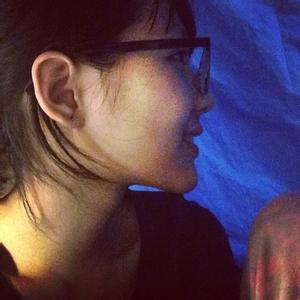- A+
四大发明:the four great inventions
印刷术/*活字印刷术:printing/movable-type printing
造纸术:paper-making
指南针:compass
火药:gunpowder
丝绸之路:the Silk Road
瓷器/*陶器:china/pottery
硬币/纸币:coins/paper bills
对外贸易/海外贸易/*海上贸易:foreign trade/overseas trade/maritime commerce
古代文明:ancient 
civilization
文化交流:cultural exchange
文化冲突:cultural shock/cultural conflict
文化产业:cultural industry
文化遗产:cultural heritage
乡村文化:rural culture
民族文化:national culture
民间艺术:folk art
表演艺术:performing art
特征:feature/characteristic
祖先:ancestor
哲学家:philosopher
中国文学:Chinese literature
中外学者:Chinese and overseas scholars
巨著:great works
显著成就:remarkable achievements
神话/传说:myth/legend
阳历/阴历:solar calendar/lunar calendar
金/木/水/火/土:metal/wood/water/fire/earth
工艺/手工艺品:craft/ handicraft
唐朝:Tang Dynasty
始于...年/持续...时间/灭亡:begin in/last for/collapse
统治/统治者:govern (v.) rule (v)/ruler (n.)
在...统治下:during the reign of ...
权力/权威:power/authority
戏剧/京剧/剧院:drama/Peking Opera/theater
诗人/政客:poet/politician
少数民族:ethnic minority
社会地位:social status
起源于:originate in/from …
(在一个地方起源用in,从一个地方起源用from)
追溯到: be traced back to …/trace 
… back to…
发源地:birthplace
古代:ancient times
现代:modern times
独特元素:a unique element
组成(选一背诵即可):
A constitute B/A comprise B/A make up B (A组成B)
B consist of A/B is composed of A (B由A组成)
【常见错误:切忌不要用comprise of】
工业革命:industrial revolution
代表:represent/stand for
象征:symbolize (v.) /symbolic (adj.) /symbol (n.)
繁荣:prosperous (adj.) / prosperity (n.) /flourish (v.)
国宝:national treasure
*腐败:corruption
*扩大领土:extend the territory/domain
*夺取政权:seize the power
*才子佳人:gifted scholars and beautiful ladies
*下棋饮茶:play chess and drink tea
*耕耘收割:sow and reap
*织布缝衣:weave and sew
*湖上打渔:fish on the lake
*砍柴采药:cut firewood and gather herbs
*吟诗作画:compose poems and paint pictures
经典模板句练习:
1.中国武术(martial art)的起源可以追溯到自卫的需要、狩猎活动以及古代中国的军事训练 (CET-4)。
The origin of Chinese martial art can be traced back to the needs of self-defense, 
hunting and ancient Chinese military training.
2.构成现在世界基础的许多元素都起源于中国 (CET-4)。
Many elements which constitute/comprise the foundation of the modern world originated in China.
3.最出名的就是门神和三大神——福神、薪神和寿神(Three Gods of Blessing, Salary and Longevity),寓意着庄稼丰收,家畜兴旺和庆祝春节 (CET-4,6)。
The most famous ones are Door Gods and Three Gods of Blessing, Salary
and Longevity, symbolizing/which symbolize the good/abundant harvest of crops, the
prosperity of domestic/home animals and the celebration of the Spring Festival.
4.那时,黄色是专为皇帝使用的颜色,皇家宫殿全都漆成黄色,皇袍总是黄色的,而普通老百姓是禁止穿黄色衣服的 (CET-4)。
At that time, yellow was only/exclusively used for the emperor. The royal palace was painted yellow and the imperial robe was always yellow. However, ordinary people were forbidden to wear clothes of the color.
5.反应在艺术和文学中的乡村生活理想是中国文明的重要特征。这在很大程度上归功于道家(Taoist)对自然的感情。(CET-6)
The rural life ideal reflected in the arts and literature is an important feature of Chinese civilization. This, to a large extent, can be attributed to the Taoist affection towards nature.
6.汉朝统治期间有很多显著的成就,它最先向其他文化敞开了大门,对外贸易兴旺。汉朝开拓的丝绸之路通向中西亚乃至罗马,各类艺术流派繁荣,涌现了很多文学,历史,哲学巨著。(CET-6)
There are a number of remarkable achievements during the reign of the Han dynasty, which first unlocked the door to other cultures and made foreign trade prosperous. The Silk Road which the Han dynasty has explored led to Central and Western Asia, and even to Rome, with all varieties of art schools flourishing and many works in literature, history and philosophy.
7.大妈是对中年妇女的称呼,但是现在特指不久前金价大跌时大量购买黄金的中国妇女。(CET-6)
The word “dama” is used to describe middle-aged women. However, it particularly refers to those Chinese women who rushed to purchase a large amount of gold when the gold price decreased sharply not long ago.
8.宋朝还最早使用火药并发明了活字(movable-type)印刷。人口增长迅速,越来越多的人住进城市,那里有热闹的娱乐场所。社会生活多种多样。人们聚集在一起观看和交易珍贵艺术品。宋朝的政府体质在当时也是先进的。政府官员均通过竞争性考试选拔任用。(CET-6)
The Song Dynasty was the first to use gunpowder and to invent movable-type printing. With rapidly increasing population, more and more people moved into cities, in which entertainment venues were very busy. There are many forms of social life. The Song dynasty also had an advanced government system in the world. All of the government officials were selected and appointed through the competitive examination.
二.旅游城市类
●
风景/风光:scenery/landscape
目的地:destination
景点:tourist attraction/scenic spot
游览:sightseeing (n.)/see the sight
历史古迹:historic site
文物:cultural relic
位于:be located in
以…而闻名/作为…而闻名:be famous for …/be famous as
享誉盛名:earn a great reputation
有…年历史:has a history of … years
面积/人口:area/population
平方公里:square kilometers
规模:scale
渔村/水乡:fishing village/water town
偏远地区:remote areas
日出/日落:sunrise/sunset
湿润的/干燥的:wet(humid)/dry
宏伟壮丽:magnificent
治疗疾病:treat diseases
温泉/瀑布:hot spring/waterfall
园林建筑:garden architecture
寺庙/殿堂:temple/hall
塔:pagoda/tower
楼:mansion
亭:pavilion
溪/河/海:stream/river/sea
林/田/*牧:forest/field/pasture
东南角/东南部:southeastern corner/southeastern part
华北:North China/northern China/northern regions of China
陕南:southern Shaanxi
江南:Yangtze River Delta
山东省中部:in the center of Shandong Province
*蜿蜒小路:winding road/trail
朝圣/朝圣者 pilgrimage/pilgrim
*避暑胜地:summer resort
*美不胜收:too many beautiful things to be appreciated at once
*闻名遐迩:known far and wide
*奇花异草:exotic flowers and herbs
*络绎不绝:an endless stream
山水画:landscape painting
摄影:photography
获得灵感:obtain inspiration
缆车:cable cars
新趋势:new trend/tendency
背包旅行/背包客:backpacking/backpacker
体验文化:experience cultures
丰富知识:enlarge knowledge
拓展视野:broaden horizon
生活节奏:life tempo/pace
餐馆/旅馆:restaurant/hotel
住宅/集市/庭院:dwelling/market/courtyard
洪水/干旱:flood/drought
衣食住行:clothing, meals, accommodation, transportation
月饼:moon cake
海鲜:seafood
年糕:rice cake
饺子:dumplings
面条:noodle
面粉:flour
粥:porridge
米饭(水稻):rice
谷物(粮食):grain
小麦:wheat
三明治:sandwich
汉堡:hamburger
汤:soup
菜:dish/cuisine(dish是一道菜,cuisine是菜肴、烹饪)
糖/盐/醋/酒/油:sugar/salt/vinegar/wine/oil
色/香/味/行:color/aroma/taste/appearance
酸/甜/苦/辣/咸/淡:sour/sweet/bitter/spicy/salty/light
煮/炸/熏/烤:boil/fry/smoke/bake(roast, grill)
西瓜/葡萄:watermelon/grape
经典模板句练习:
1.黄山位于安徽省南部。它风景独特,尤以其日出和云海著称。(CET-4)。
Mount Huang is located in the south of Anhui province. With unique sceneries, it is particularly famous for the sunrise and the sea of clouds.
2.年轻游客数量的不断增加,可以归因于他们迅速提高的收入和探索外部世界的好奇心。 (CET-4)。
The number of young tourists/travelers/visitors is increasing, which can be attributed to the rapid growth of their income and the curiosity to explore the outside world.
3.传说中国古代哲学家墨子用了三年时间在潍坊制作了世界上首个风筝,但放飞的第一天风筝就坠落并摔坏了。(CET-4)。
It is said that Motse, one of the philosophers in ancient China, spent three years in Weifang in making the first kite in the world, and that the kite fell and crashed on the first day when it flew in the sky.
4.中国南方大多种植水稻,人们通常以大米为主食;而华北大部分地区因为过于寒冷或过于干燥,无法种植水稻,那里的主要作物是小麦。(CET-4)。
Rice is mainly grown in southern China where people usually take rice as the staple food. However, because it is either too cold or too dry, it is impossible to grow rice in most of the northern regions of China, so the main crop there is wheat.
5.丽江到处都是美丽的自然风光,众多的少数民族同胞提供了各式各样、丰富多彩的文化让游客体验。(CET-4)
There is beautiful natural scenery everywhere in Lijiang, and many ethnical minorities provide tourists with a great variety of cultural experiences.
6.珠江是华南一大河系,流经广州市,是中国第三长的河流,仅次于长江和黄河。(CET-4)
The Pearl River, an extensive river system in southern China, flows through Guangzhou City. It is the China’s third longest river which is only after the Yangtze River and the Yellow River.
7.长江流经多种不同的生态系统,是诸多濒危物种的栖息地,灌溉了中国五分之一的土地。(CET-4)
Flowing through many different ecosystems, the Yangtze River is the habitat to a whole host of endangered species and irrigates one fifth of the land in China.
8.中国园林是经过三千多年演变而成的独具一格的园林景观。它既包括为皇室成员享乐而建造的大型花园,也包括学者、商人和卸任的政府官员为摆脱嘈杂的外部世界而建造的私家花园。这些花园构成了一种意在表达人与自然之间应有的和谐关系的微缩景观。典型的中国园林四周有围墙,园内有池塘、假山(rockworks)、树木、花草以及各种各样由蜿蜒的小路和走廊连接的建筑。漫步在花园中,人们可以看到一系列精心设计的景观犹如山水画卷(scroll)一般展现在面前。(CET-6)
The Chinese garden has become a landscape of a unique style after an evolvement of more than 3000 years. It includes not only the large gardens built for royal members to enjoy themselves, but also the private gardens built for scholars, merchants and retired government workers to get rid of the noisy outside world. These gardens constitute a miniature designed to express the harmonious relationship between man and nature. A typical Chinese garden is surrounded by walls. In the garden, there are ponds, rockworks, trees, flowers and all kinds of buildings which are linked by winding trails and corridors. Wandering in the garden, people may feel that a series of well-designed scenery exhibit itself before us like a landscape scroll.
三.科学教育类
●
大一/大二/大三/大四:freshman/sophomore/junior/senior
学士/硕士/博士:bachelor/master/doctor
获得学位:obtain/receive a degree
文凭/证书:diploma/certificate
学年:academic year
学期:term/semester
学习成绩:academic record
学习表现:academic performance
学分:credit
毕业论文:thesis [本硕] dissertation [博士]
文科/理科:arts/science
本科生:undergraduate
大学毕业生:college/university graduates
研究生:postgraduate
博士生:Ph.D. candidate
幼儿园:kindergarten
小学:primary school/elementary school
中学:secondary school/high school
系/主修/辅修:department/major/minor
教学设施:teaching facility
食堂:dining hall/canteen
宿舍:dormitory
选修课:elective/optional course
学费:tuition fee
教授/副教授/讲师:professor/associate professor/lecturer
全体老师:faculty
终身教育:lifelong education
*素质教育:quality-oriented education
*应试教育:exam-oriented education
理论知识:theoretical knowledge
实践知识:practical knowledge
信息时代:information age
逃课:skip class
*德智体美劳全面发展:all around development of moral, intellectual, physical, aesthetics and labor education
学习氛围:learning atmosphere
激发兴趣:stimulate one’s interest
开发潜力:tap one’s potential
学生减负:reduce study load
做兼职:work part-time
*自我约束:self-discipline
自我训练:self-training
代沟:generation gap
*辍学/失学学生:school dropout/leaver
*课外活动:extracurricular activity/ after-school program
学生会:students’ association
*研讨会:seminar
考研:take the Graduate School Admission Test
创业:start/build one’s own business
出国/出国留 :go abroad/study abroad
就业:get/find a job
重点大学:key university
招生:recruit (v.)/recruitment (n.)
录取:enroll (v.)/ enrollment (n.)
申请入学:apply for admission to/into …
高考:College Entrance Examination/
雇主/雇员:employer/employee
职业培训:job training
奖学金:scholarship
专门人才:professional personnel
创新:innovation
经典模板句练习:
1.通过阅读,人们能更好的学会感恩、有责任心和与人合作。(CET-4)。
By/Through reading, people can better learn to be grateful, responsible and cooperative.
2.美国网民更多的是受实际需要的驱使,用互联网为工具发电子邮件、买卖商品、做研究、规划旅程或付款。(CET-4)。
The American netizens are more likely to be driven by practical needs, using the Internet as a tool to send emails, buy and sell products, make researches, arrange trips or make payments.
3.中国的创新正以前所未有的速度蓬勃发展。(CET-4)。
China’s innovation is developing/flourishing at an unprecedented speed.
4.中国父母往往过于关注孩子的学习。(CET-4)。
Chinese parents usually pay too much attention to their children’ s study / the study of their children.
●
四.政治经济类
●
一千:one thousand
一万:ten thousand
百万:one million
十亿:one billion
收益/成本/利润/花费:benefit/cost/profit/expense
优等品/劣质品:superior goods/inferior goods
风险/投资:risk/investment
商品:commodity
消费:consumption (n.)/consume (v.)
折扣:discount
发达的/发展中/欠发达:developed/developing/underdeveloped
经济危机:economic crisis
*经济衰退:economic recession
经济萧条:economic depression
经济复苏:economic recovery
*货币贬值:devaluation
*通货膨胀:inflation
*顺差/逆差:favorable balance/adverse balance
*关税:tariff
*债务减免:debt relief
*国内补贴:domestic subsidy
可持续发展:sustainable development
私营企业:private enterprise
购买力:purchasing power
预算:budget
*风险资本:venture capital
经济调节:economic regulation
*技术密集型产业:technology-intensive industry
*劳动密集型产业:labor-intensive industry
出口/进口:export/import
生产力:productivity
零售/批发:retail/wholesale
需求/供给:demand/supply
满足需求:meet the need
实施/推行:implement/carry out
强调:emphasize
提倡:advocate
号召:call on
共同努力:joint effort
*集体的/个人的:collective/individual
改善/增强/提高/推动:improve/enhance/boost/promote
解决:tackle/deal with/solve/address
人力资源:human resources
就业机会:job opportunity
国家安全:national security
*边界谈判:boundary negotiation
核能:nuclear energy
*维持外交关系:maintain diplomatic relations
*维护世界和平:safeguard world peace
版权:copyright
盗版:piracy
基因芯片:genetic chip
改革开放:reform and opening-up
技术转让:technology transfer
航天技术:space technology
*尖端技术:state-of-the-art technology/cutting-edged technology
*改造传统:renovate conventional industries
*建设国家创新体系:develop a national innovation system
工程中心:engineering center
*专利:patent
*应用型科研机构:application-based research institution
*工业升级:industrial upgrade
生物技术/生命科学:biotechnology/life science
纳米技术:nano technology
*网络犯罪:cyber crime
网民:netizen
教育公平:education equality
教育器材:education equipment
沿海城市:coastal city
占…比例:account for … percent
*签署合同:sign a contract
消除贫困:eliminate/reduce/get rid of poverty
环境保护:environmental protection
污染预防:pollution prevention
污染控制:pollution control
治理环境污染:curb environmental pollution
基本政策:basic policies
*废水/废气:waste water/waste gas
*环境恶化:environmental degradation/deterioration
城市的/城市化:urban/urbanization
农村的:rural
*开发可再生资源:develop renewable resources
濒危野生动物:endangered wildlife
*机械/机械化:machinery/mechanization
补充词汇:
必修课:required course
春节:the Spring Festival
除夕:Lunar New Year’s Eve
中秋节:Mid-autumn Festival
清明节:Tomb-sweeping Festival
元宵节:Lantern Festival
端午节:Dragon Boat Festival
年夜饭:family reunion dinner
烟花/爆竹:fireworks/firecracker
赏灯:view the lanterns
*拜年:pay a New Year call
豆类:bean
经典模板句练习:
1.中国政府创建了深圳经济特区,作为实施社会主义市场经济的试验田。(CET-4)
The Chinese government established the Shenzhen Special Economic Zone as the experimental plot for implementation of socialist market economy.
2.仅在11月11日,中国消费者就从国内最大的购物平台购买了价值90亿美元的商品。中国有不少这样的特殊购物日。因此,快递业(courier)在中国扩展就不足为奇了。(CET-4)
Just on Nov. 11th, Chinese customers bought 9 billion dollars of goods from the biggest online shopping website. Since there are many such special shopping days in China, it is no wonder that courier services have expanded in China.
3.为了促进教育公平,中国已经投入360亿元,用于改善农村地区教育设施和加强中西部地区农村义务教育。(CET-4)
In order to promote the equality in education, China has invested 36 billion yuan to improve the education facilities in rural areas and enhance the rural compulsory education in the central and western regions.
4.2011年3月日本人核电站事故后,中国的核能开发停了下来。中止审批新的核电站,并开展全国性的核电安全检查。(CET-4)
After the Japanese nuclear power plant/station accident in March, 2011, the development of the China’s nuclear power stopped. The approval of new nuclear power plants was suspended, and the nationwide nuclear energy safety inspection started.
5.早在使用机械和化肥之前,勤劳和富有创造性的中国农民就已经采用各种各样的方法来增加农作物产量。(CET-6)
Long before the use of machinery and fertilizers, industrious and creative farmers had already used different kinds of methods to increase crop yields.
6.第二份报告公布了一些应用科学研究的热门领域,如3D打印和人造器官研究。(CET-6)
The second report announces some heated areas in applied science, for instance, 3D printing and the study of artificial organs.
7.年均10%的GDP增长已使五亿多人脱贫。联合国的“千年(millennium)发展目标”在中国均已达到或即将达到。目前,中国的第十二个五年规划强调发展服务业和解决环境及社会不平衡的问题。(CET-6)
An average annual GDP growth rate at 10% makes over 500 million people get rid of poverty. The Millennium Development Goals of the U.N. either have been achieved or will be achieved soon in China. Currently, the 12th Five-Year Plan of China emphasizes the development of service industry and the solutions to environment and the imbalance of society.
8.这一新公布的计划旨在减少四种主要污染源,包括500万辆机动车的尾气(exhaust)排放、周边地区燃煤、来自北方的沙尘暴和本地的建筑灰尘。(CET-6)。
This newly announced plan aims to reduce four major pollution sources, including exhaust emissions from over 5 million vehicles, the burning of coals in the surrounding areas, the sandstorms and dust storms from the north areas and the local construction dusts.
9. 教育部还决定改善欠发达地区学生的营养,并未外来务工人员的子女提供在城市接受教育的同等机会。(CET-6)
The Ministry of Education has also decided to improve the nutrition of students in underdeveloped areas and provide equal opportunity for the children of migrant workers to receive education in cities.
10.中国政府一直提倡“以人为本”的发展理念,强调人们以公交而不是私家车出行。它还号召建设“资源节约和环境友好型”社会。有了这个明确的目标,中国城市就可以更好地规划其发展,并把大量投资转向安全、清洁和经济型交通系统的发展上。(CET-6)
The Chinese government invariably advocates the idea for development: “people are the most important element” and emphasizes that one should take public transportation rather than drive private cars. It also calls for the construction of a “resource-saving and environment-friendly” society.
11.在未来几年,中国将着力增加职业学院的招生人数:除了关注高等教育外,还将寻找新的突破以确保教育制度更加公平。(CET-6)
In the next few years, China will increase the number of people in vocational college. Except focusing on the higher education, the government will find a breakthrough point to ensure the justice of education.
12.如果父母决定为孩子报名参加一个课外班,以增加其被重点学校录取的机会,他们会坚持自己的决定,即使孩子根本不感兴趣。(CET-6)
Once the parents decide to sign up an afterschool class for their children in order to increase their chance of being admitted to a good school, they will stick to their decision, even though their children have no interest in it at all.
13.中国的大学和研究所正在积极开展创新研究,这些研究覆盖了从大数据到生物化学,从新能源到机器人等各类高科技领域。(CET-6)
Chinese universities and institutes are actively doing innovative researches, covering various fields of high technology, from big data to biochemistry, and from new energy to robots.
喜马拉雅FM/荔枝微课:英语播客Hely栗子




